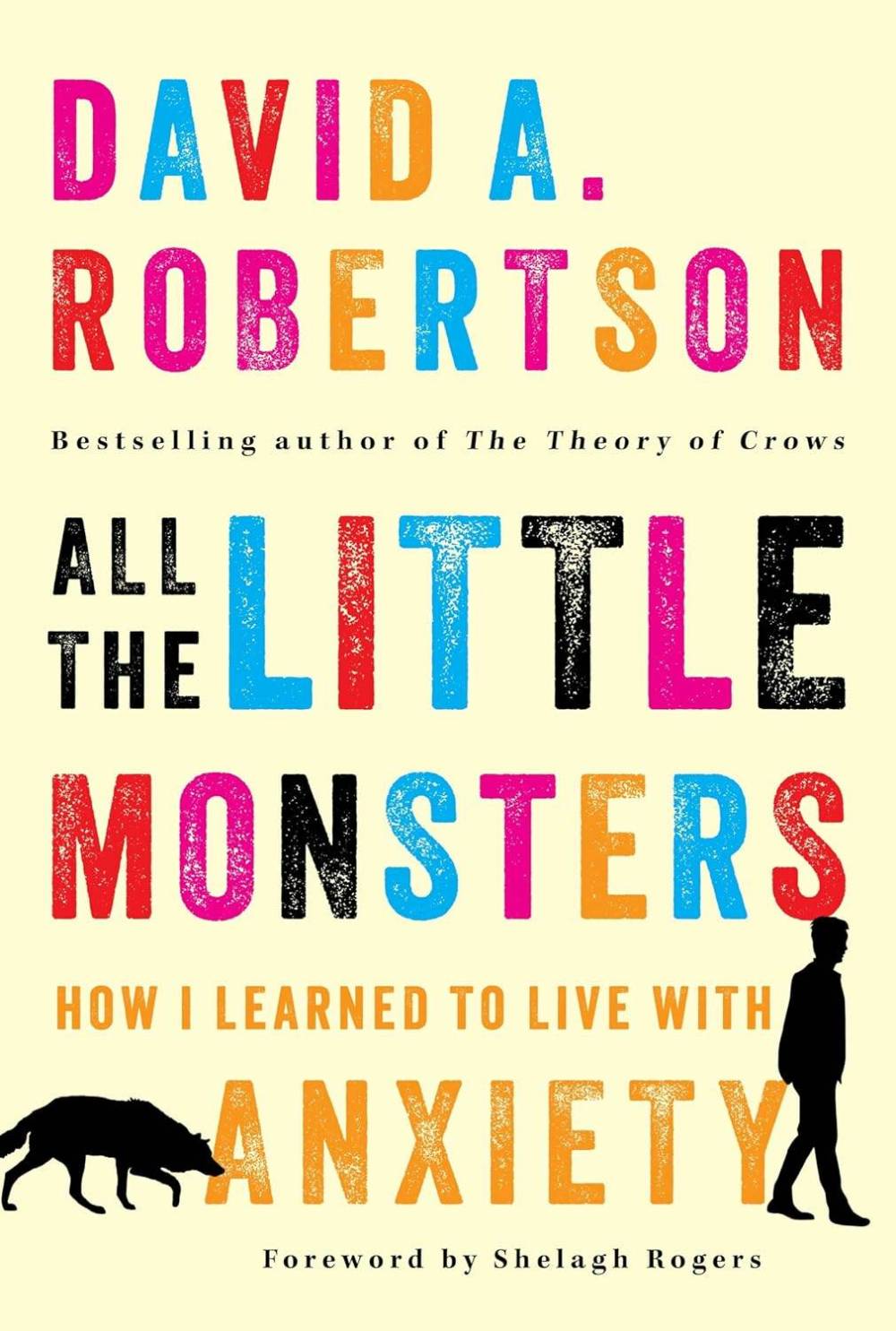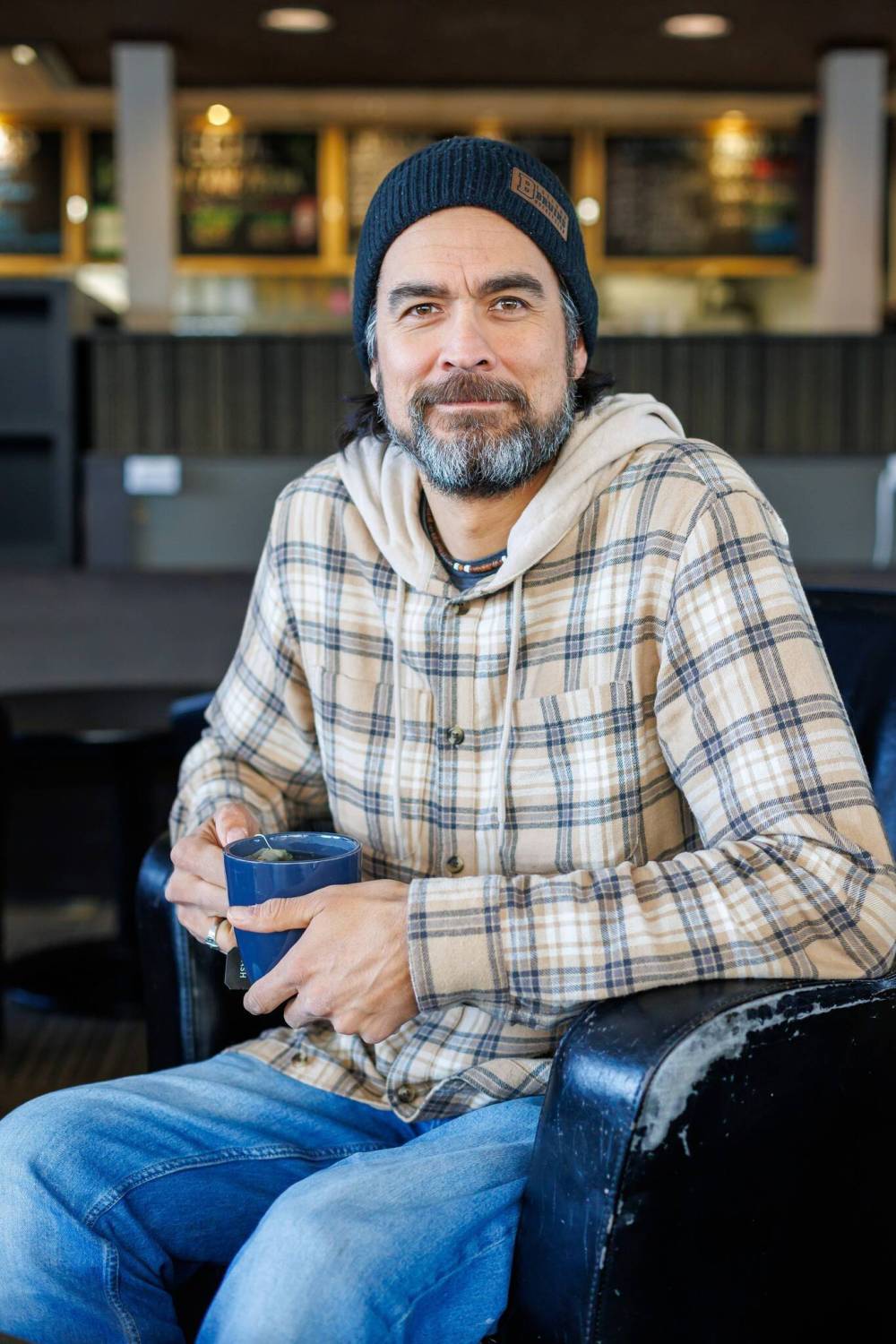Whispering monsters
Swampy Cree writer David A. Robertson speaks about his mental health journey in new memoir
Advertisement
Read this article for free:
or
Already have an account? Log in here »
To continue reading, please subscribe:
Monthly Digital Subscription
$0 for the first 4 weeks*
- Enjoy unlimited reading on winnipegfreepress.com
- Read the E-Edition, our digital replica newspaper
- Access News Break, our award-winning app
- Play interactive puzzles
*No charge for 4 weeks then price increases to the regular rate of $19.00 plus GST every four weeks. Offer available to new and qualified returning subscribers only. Cancel any time.
Monthly Digital Subscription
$4.75/week*
- Enjoy unlimited reading on winnipegfreepress.com
- Read the E-Edition, our digital replica newspaper
- Access News Break, our award-winning app
- Play interactive puzzles
*Billed as $19 plus GST every four weeks. Cancel any time.
To continue reading, please subscribe:
Add Free Press access to your Brandon Sun subscription for only an additional
$1 for the first 4 weeks*
*Your next subscription payment will increase by $1.00 and you will be charged $16.99 plus GST for four weeks. After four weeks, your payment will increase to $23.99 plus GST every four weeks.
Read unlimited articles for free today:
or
Already have an account? Log in here »
Hey there, time traveller!
This article was published 16/01/2025 (348 days ago), so information in it may no longer be current.
In September 2024, David A. Robertson suffered a debilitating panic attack and nervous breakdown that left him overwhelmed for the better part of three months.
“I was about to go to Germany. I had just woken up at two in the morning — I was supposed to leave at about five in the morning to go to the airport,” the Winnipeg Swampy Cree author says during a brief stop at home between numerous out-of-town commitments.
“I called the publisher, the literary festival, Air Canada. I didn’t go.”

MIKE DEAL / FREE PRESS
Author David A. Robertson has penned a new memoir about his struggles with anxiety.
Robertson was able to function when necessary, putting on a brave face while struggling to cope with the debilitating anxiety that flooded his system.
“I lost 20, 25 pounds. I had so many people notice I’d look skinnier, and be like, ‘Oh, you look, you’re looking healthy.’ Meanwhile, I was having one of my worst runs of anxiety. There was a trigger, but generally, I had a massively busy year and my body was just like, ‘You need rest. If you’re not gonna rest, I’ll make you rest,’” he says.
On Friday, the 48-year-old launches his second memoir, All the Little Monsters: How I Learned to Live With Anxiety, at McNally Robinson Booksellers’ Grant Park location, where he’ll be joined in conversation by Shelagh Rogers.
The book chronicles Robertson’s ongoing struggles with mental-health issues over the years — anxiety, depression, obsessive-compulsive disorder and ADHD — and how he has learned to cope.
Robertson has written over two dozen books, mostly for younger readers, including two Governor General’s Literary Award-winning picture books, When We Were Alone and On the Trapline, both illustrated by Julie Flett.
He spends an increasing amount of his time travelling to speak in schools and lead talks about mental health; as well as in his role as editorial director at Tundra Book Group, where he oversees a new imprint focused on Indigenous writers and illustrators.
Black Water (2020), Robertson’s first memoir, explored notions of intergenerational trauma and connections with his father Don, who died shortly after he finished writing the book.
“I promised myself I’d never do another memoir. Black Water took a lot out of me. Black Water almost killed me,” he says.
But with Monsters, Robertson is finally putting to paper the ways in which he’s dealt with mental-health struggles.
“This book is in a lot of ways more intimate, more personal than Black Water. It goes to a lot of places that were really tough to go to,” he says.

All the Little Monsters
The monsters of the book’s title represent the thoughts causing Robertson anxiety, miring him in depressive states and, in some cases, causing suicidal ideation.
In the book he describes how coping techniques and medication have helped him quiet the monsters without getting prescriptive.
This is familiar territory for Robertson.
“I’ve been talking about mental health now for about 10 years — every year I’ve done a bit more in the way of mental-health advocacy. It has become just as important to me as Indigenous representation,” he says.
The opening chapter of Monsters details Robertson’s experience at Wordfest in Calgary in 2019, where he suffered a severe panic attack just before going on stage for a panel discussion on mental health; rather than retreat from the event, he joined the panel and talked openly about what he was going through at that moment.
From there he chronicles a 2010 nervous breakdown that saw him barely get out of bed for six months as well as subsequent panic attacks and bouts of depression, many of which he credits wife Jill for helping him through.
Compounding the situation, Robertson also suffers from premature ventricular contractions, which disrupt the regular rhythm of the heart. He’s found anxiety can trigger the condition, which in turn ramps up his anxiety.
“My heart is awful. It’s really kept me from normal life things, but it’s also not going to kill me — at least not for a long time,” he says.
Rather than bankrupt his family to have his heart surgically repaired right away in the U.S., the father of five has opted to have the procedure in Canada, hopefully within the next 6-12 months.
Professionally, this year is even busier than 2024. Robertson’s publishing schedule includes Monsters; the picture book Little Shoes, illustrated by Maya McKibbin; 52 Ways to Reconcile, a guide for non-Indigenous and Indigenous people to work towards reconciliation; and The World’s End, the sixth and final book in his middle-grade Misewa Saga series.

MIKE DEAL / FREE PRESS
Robertson has found healing in sharing about his mental health.
While it was difficult for Robertson to revisit past mental and physical health scares, the end result was worth it.
“Writing this book was really cathartic for me. I think that facing a lot of your anxieties and the realities of your experience and then sharing it can be a healing thing,” he says.
“I went through losing my father, becoming depressed, becoming suicidal. I know a lot of people have been through something similar, or are going through it right now, and maybe don’t know how to process it. Maybe this book will help.”
As for Robertson’s monsters, they may never completely go away, but he’s now in a place where he can better manage them.
“I’ll always have them whispering to me. I know I will. But I can hear them and not listen to them. That’s the difference.”
ben.sigurdson@freepress.mb.ca

Ben Sigurdson
Literary editor, drinks writer
Ben Sigurdson is the Free Press‘s literary editor and drinks writer. He graduated with a master of arts degree in English from the University of Manitoba in 2005, the same year he began writing Uncorked, the weekly Free Press drinks column. He joined the Free Press full time in 2013 as a copy editor before being appointed literary editor in 2014. Read more about Ben.
In addition to providing opinions and analysis on wine and drinks, Ben oversees a team of freelance book reviewers and produces content for the arts and life section, all of which is reviewed by the Free Press’s editing team before being posted online or published in print. It’s part of the Free Press‘s tradition, since 1872, of producing reliable independent journalism. Read more about Free Press’s history and mandate, and learn how our newsroom operates.
Our newsroom depends on a growing audience of readers to power our journalism. If you are not a paid reader, please consider becoming a subscriber.
Our newsroom depends on its audience of readers to power our journalism. Thank you for your support.


